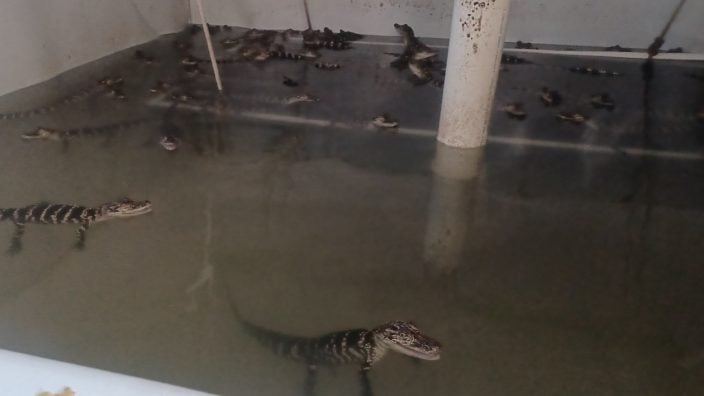Ohio Farm Bureau Podcast: Preparing Farmers for Harvest and Beyond
On this Ohio Farm Bureau Podcast, hear what experts in weather, policy and lending told farmers at a recent Ohio Soybean Hometown Tour stop.
Read MoreFarmed alligators may soon revisit their vegetarian dietary roots, all thanks to the soybean checkoff.
According to scientists, alligators’ ancestors were vegetarians. It seems these reptiles, or at least the farmed ones, may soon revisit their dietary roots, all thanks to the soybean checkoff.
Production of farmed U.S. alligators is expanding, with a farm gate value of nearly $80 million in 2020 (up from around $30 million in 2010). These animals were historically fed chickens, but their handlers moved away from raw meat diets for more stable diets. Industry then moved to a pelletized diet—an animal-based feed that has remained largely unchanged since it was first developed in the 1990s.
Mark Flint, who is a conservation wildlife veterinarian with The Ohio State University, saw an opportunity.
“Soybeans are a great alternative to animal-based protein sources. Soybeans have a lot of potential. There are many strains, so you can pretty much select what you want in terms of protein levels and alkaloid levels,” he said.
Enter the Ohio Soybean Council and soybean checkoff. Flint met Barry McGraw (who leads soy-based product research and commercialization efforts for OSC) through the Ohio Aquaculture Association. “We literally met over a cup of coffee, and we started talking about potential projects,” said Flint.
“The Ohio Soybean Council board is always looking for innovative new uses of soybeans, and we’d already had success in animal agriculture,” said McGraw, referring to EnzoMeal, a soy-based diet developed for fish. “A soy-based diet for alligators is an excellent exploratory project. If this research is successful, we’ll increase soybean demand by helping a growing industry.”
So how’s the project going? So far, the results are promising.
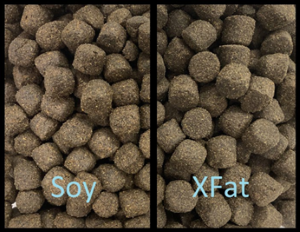
As with all commercially managed species, good alligator herd health is essential to optimal production. The project had to confirm that switching to a soy-based feed would have no negative impacts on the animals’ weight gain, hide quality, behavior, health, or overall welfare. Researchers began with 1,728 newly hatched alligators and fed each of them one of two diets: a standard commercial alligator feed (Cargill XFat) or the soybean-based feed. Other than protein source, the two feeds were nearly identical in composition. The alligators were then monitored for activity levels that indicate well-being and tested for health impacts over two years. Researchers concluded that, regardless of diet, the animals’ health and welfare was excellent and their mental state was positive.
“In the second phase, we’ll look at different concentrations of soy and try to refine the protein levels,” said Flint. “Nobody knows exactly how much protein an alligator needs to remain healthy. If we can reduce the level of protein enough that soybeans can be the sole protein source, we won’t have to add any byproducts. Then we can use a milled soybean product for a far more cost-effective feed.”
For more information about the development of soy-based new uses funded by your checkoff, visit airableresearchlab.com.
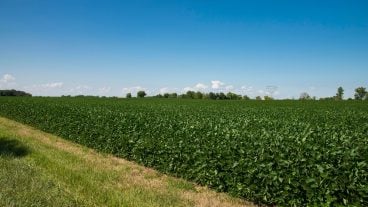
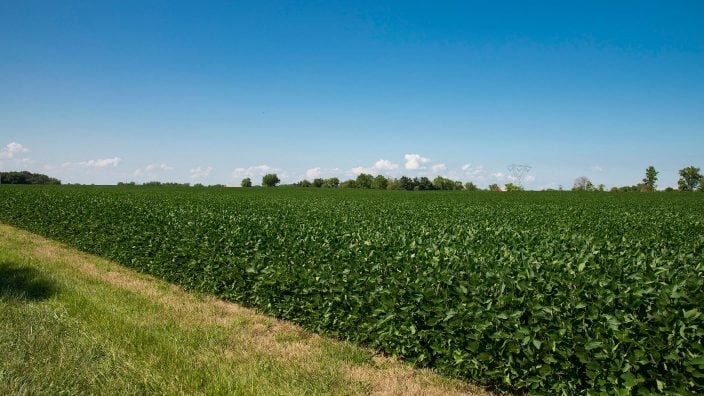
On this Ohio Farm Bureau Podcast, hear what experts in weather, policy and lending told farmers at a recent Ohio Soybean Hometown Tour stop.
Read More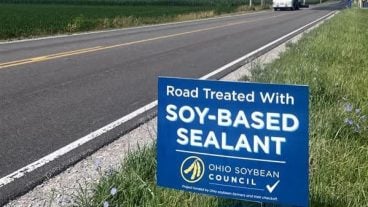
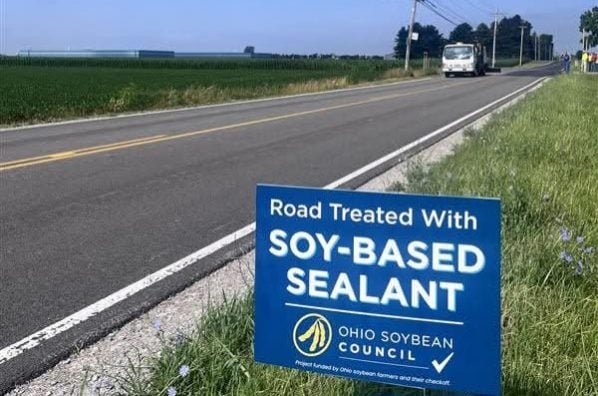
Find out how a new soybean-based product is being used to make roads last longer, taxpayer dollars go further and soybeans more valuable.
Read More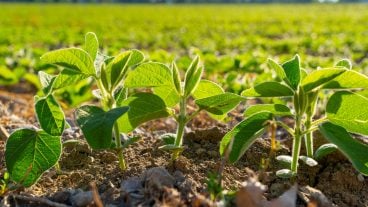
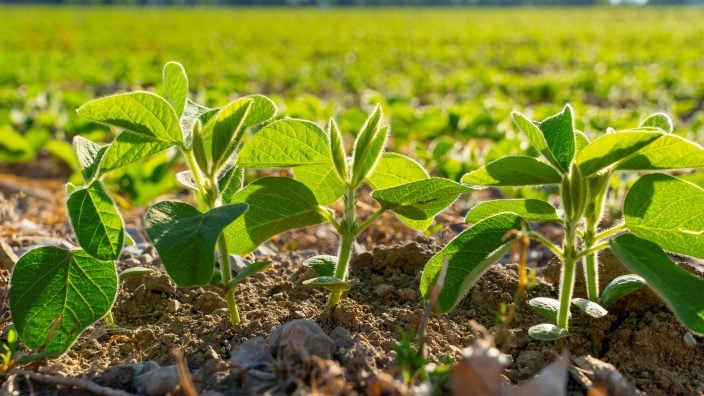
Hear about the highlights of a recent Ohio Soybean Council trade mission to Korea and get tips to protect your risk in a volatile cattle market from United Producers.
Read More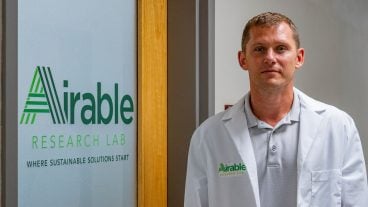
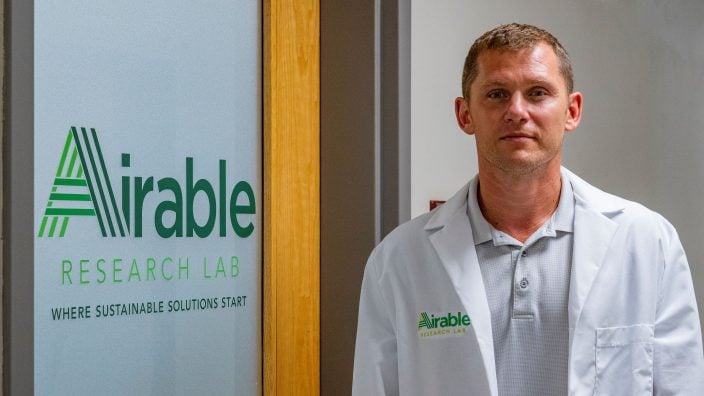
Airable Research Lab focuses 100% on developing safe, sustainable products made from the soybean oil grown right here in the Buckeye State.
Read More
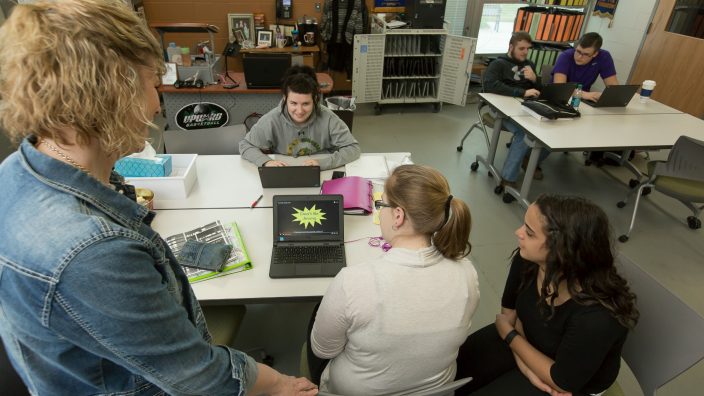
Learn about the program that provides free, STEM resources for Ohio teachers and meet a Golden Owl Award recipient.
Read More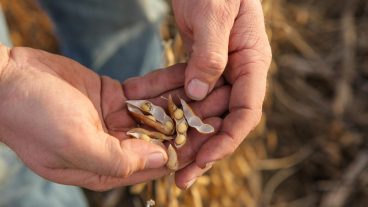
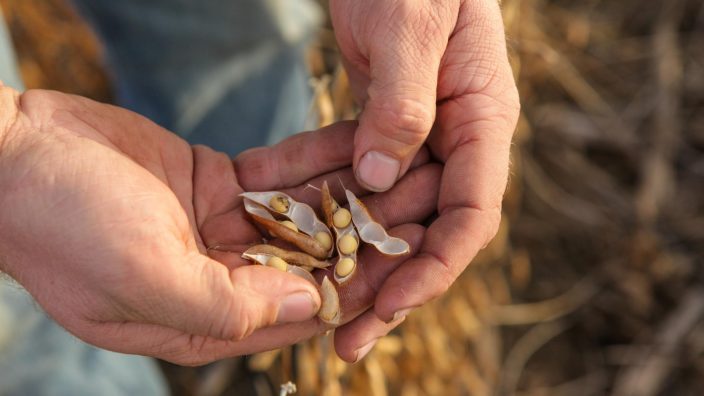
Get industry updates from the Ohio Soybean Council and Ohio Pork Council on this Ohio Farm Bureau Podcast.
Read More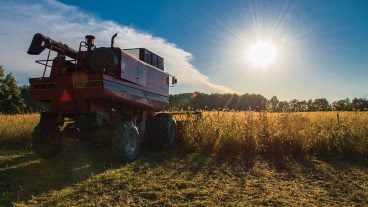
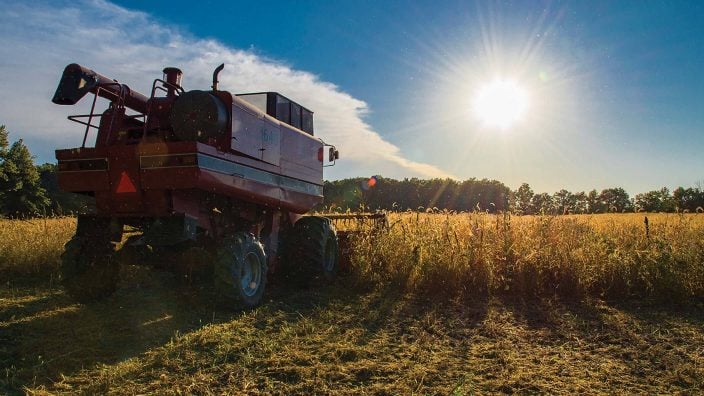
On this Ohio Farm Bureau Podcast, learn about the latest experiments being conducted at the Airable Lab, with the support of Ohio Soybean Council.
Read More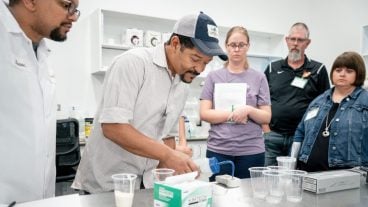
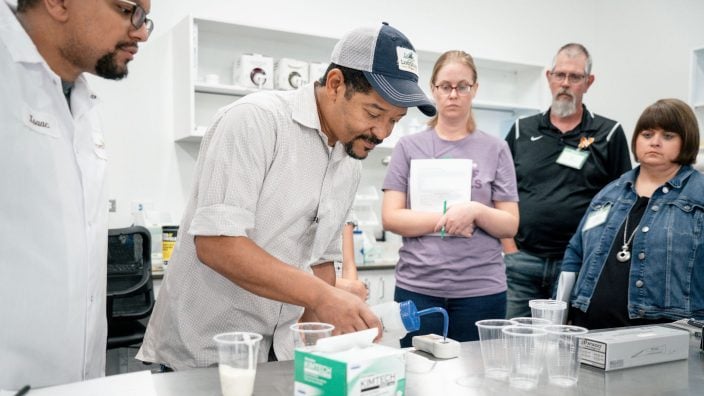
This summer’s ‘Experience Food Science: Field to Package’ workshop offered educators a close look at the intersection of agriculture, food science, and technology.
Read More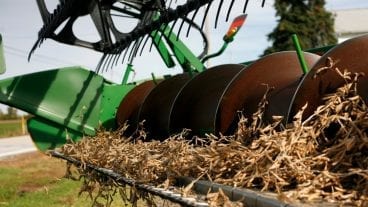
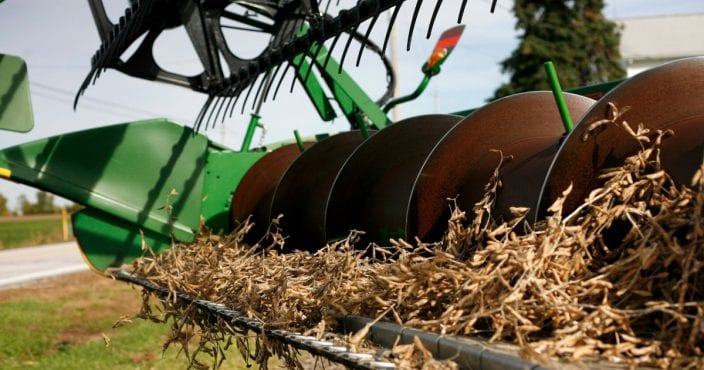
Hear about the latest SCN research, funded by the Ohio Soybean Council and how farmers can get free tests for their fields. Plus, get an update from Ohio Harness Horsemen’s Association.
Read More

Learn more about how the Ohio Soybean Council is working with trade teams from around the world to find demand for Ohio grown soybeans and why more farmers are looking into forming LLCs.
Read More